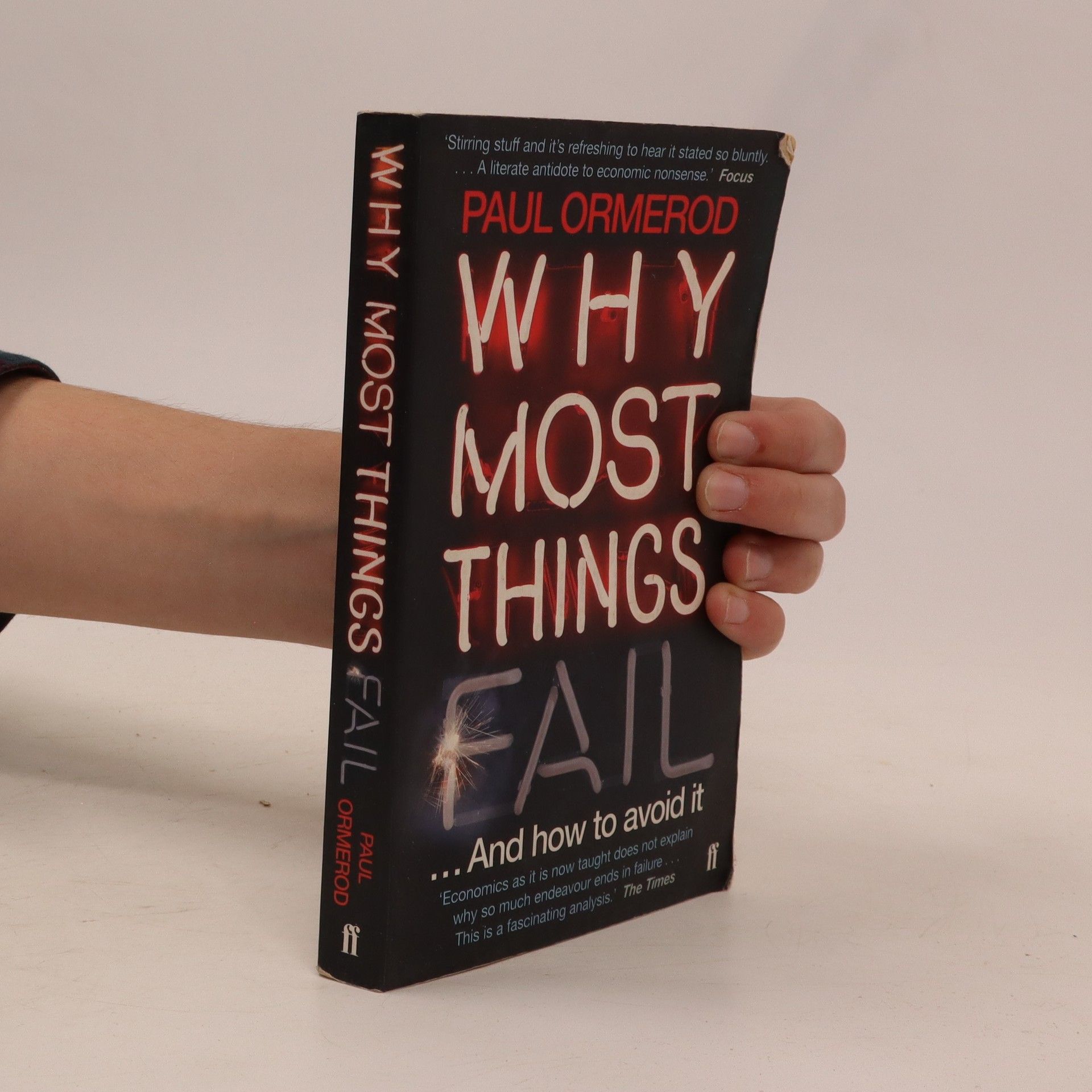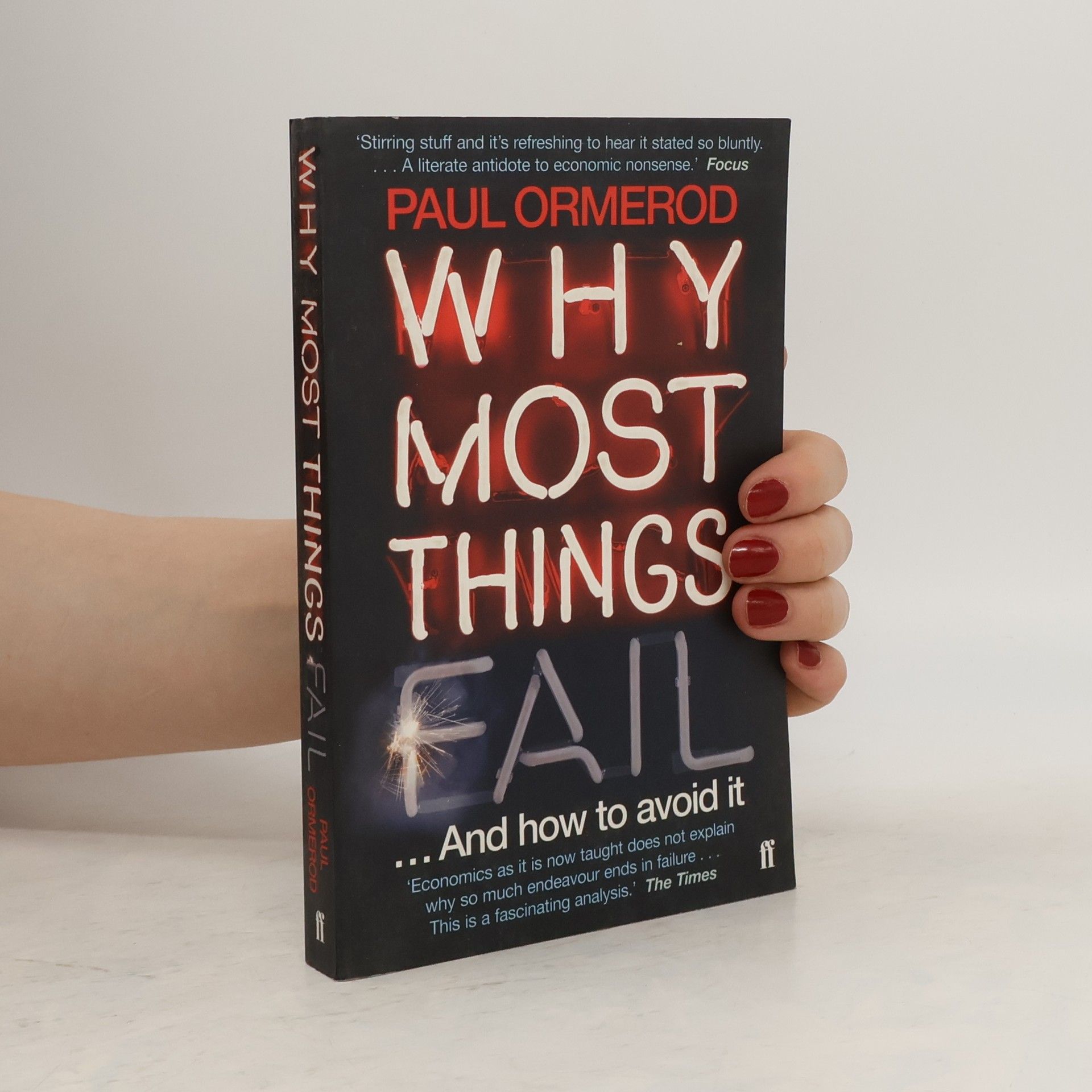Why Most Things Fail
- 272 pages
- 10 hours of reading
Focuses on why some businesses fail, and how to avoid it. This book looks at a truth all too seldom acknowledged: most commercial and public policy ventures will not succeed. It shows what strategies corporations, businesses and governments will need to adopt to stand a chance of prospering in a world where only one thing is certain.




